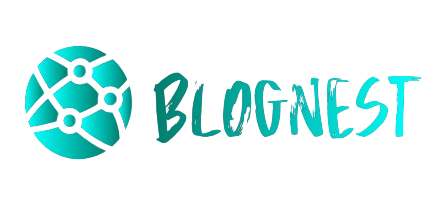
Introduction to Artists Don’t Use Facebook
Discover why Artists Don’t Use Facebook in favor of more engaging, visual, and monetizable platforms. Learn the key reasons and best alternatives today!
Influential in reinventing the culture of self-marketing and audience engagement, social media has become a tool for art promotion. However, many modern artists are, nowadays, retreating from Facebook.
Why is this so? While artists feel that there is much power left in Facebook, its powers do not cater to fulfilling their creative and commercial necessities. This article looks into some of the core reasons behind the abandonment of Facebook by contemporary painters, deciding to choose other sources instead.
1. Declining Organic Reach & Algorithmic Limitations
The constant change in Facebook’s algorithms has almost completely eliminated the chance for organic visibility for its artists. In olden days, organic reach was maximised for anyone publishing posts; today, it is essentially obliterated.
Instead, the platform rewards paid content. Thus, nowadays, artists must pay to be seen through ads on Facebook; many artists consider this unreasonable and therefore would rather work in other platforms with more organic reach, like TikTok and Instagram.
2. Lack of Visual-Centric Features
Artists thrive in a setting where the focus is mostly on the visual; on Facebook, that is a rarity. While it allows sharing of images and videos, it lacks the aesthetic value of such sites as Instagram or Behance.
The documentation provides ancillary support to the presentation of work in these visually centered networks and does not overpower it with status updates, political rants, or memes.
3. Engagement is Lower Compared to Other Platforms
Unlike Instagram, where likes, shares, and comments do not take more than a second to obtain, artistic content on Facebook barely earns an engagement with the greater share of disappointment.
The tight-knit culture of intense family and friend relations does not help its case for artists building up new audiences. Plus, many of the younger users-in-need-of-attention for emerging artists would rather spend their time on TikTok and Instagram than Facebook.
4. Lack of Monetization Opportunities
These days, modern artists are looking for platforms with direct monetization options, one such way being Patreon, and another platform being Gumroad, NFTs useable over decentralized networks.
While the monetization possibilities on Facebook are very few, they are mainly directed toward businesses, influencers, and advertisers rather than independent artists. Platforms like YouTube, Twitch, or Instagram usually open much better possibilities for revenue.
5. Privacy Issues and Data Issues
Facebook has faced a lot of controversy concerning data privacy, which makes a lot of users, artists included, very reluctant to upload anything on the platform.
The risks of IP thefts, unauthorized reposts, and the artist’s loss of control are all powerful deterrents to using Facebook. Other platforms present a stronger stance on copyright protection, thus allowing artists to retain control of their work.
6. Turn to Niche & Community based platforms
Artists today favor having their own niche platforms for creatives. DeviantArt, Behance, and ArtStation supply artists with tailored features for showcasing portfolios, connecting with fellow artists, and finding potential clients.
This builds the artist’s profile without distraction from the less art-focused user base of Facebook in its wider sense.
7. Rise of Video & Short-Format Content Platforms
With the new wave of video content, many of the artists now use TikTok, YouTube Shorts, and Instagram Reels to share time-lapse videos, tutorials, and behind-the-scenes content. These formats allow artists to engage their audience more than the traditional static posts on Facebook.
8. Frequently Asked Questions (FAQs)
1. Why are modern artists Don’t Use Facebook?
A: Modern artists are leaving Facebook due to declining organic reach, low engagement, lack of monetization opportunities, and increasing privacy concerns. Many are opting for more visually immersive and artist-friendly platforms.
2. What are the best social media platforms for artists?
A: Instagram, TikTok, Behance, ArtStation, and Patreon are among the best platforms for artists. They offer better engagement, monetization options, and a strong creative community.
3. Is Facebook still useful for any type of artist?
A: Facebook can still be useful for artists who rely on community engagement, groups, and event promotion. However, for visual artists looking for organic growth and sales, other platforms may be more effective.
Conclusion
The digital world is evolving, and the platforms used by artists to showcase their work are changing as well. With algorithm restrictions, low engagement, lack of monetization, and a fickle audience, the once-mighty Facebook does not serve the purpose of the contemporary artist.
With the advent of more visually enticing, interactive, and monetizable platforms for artists, Facebook is becoming very increasingly undesirable in the art community.
